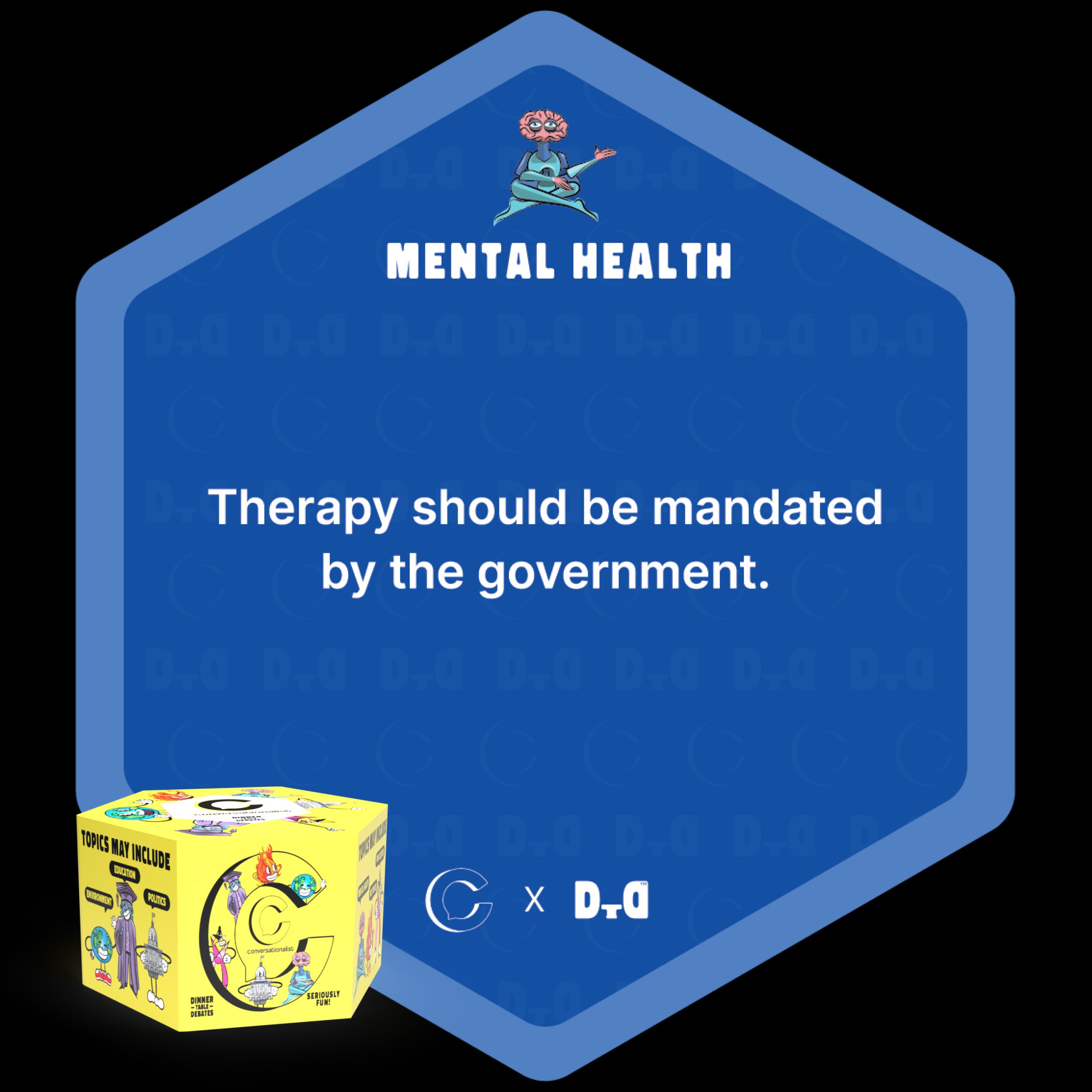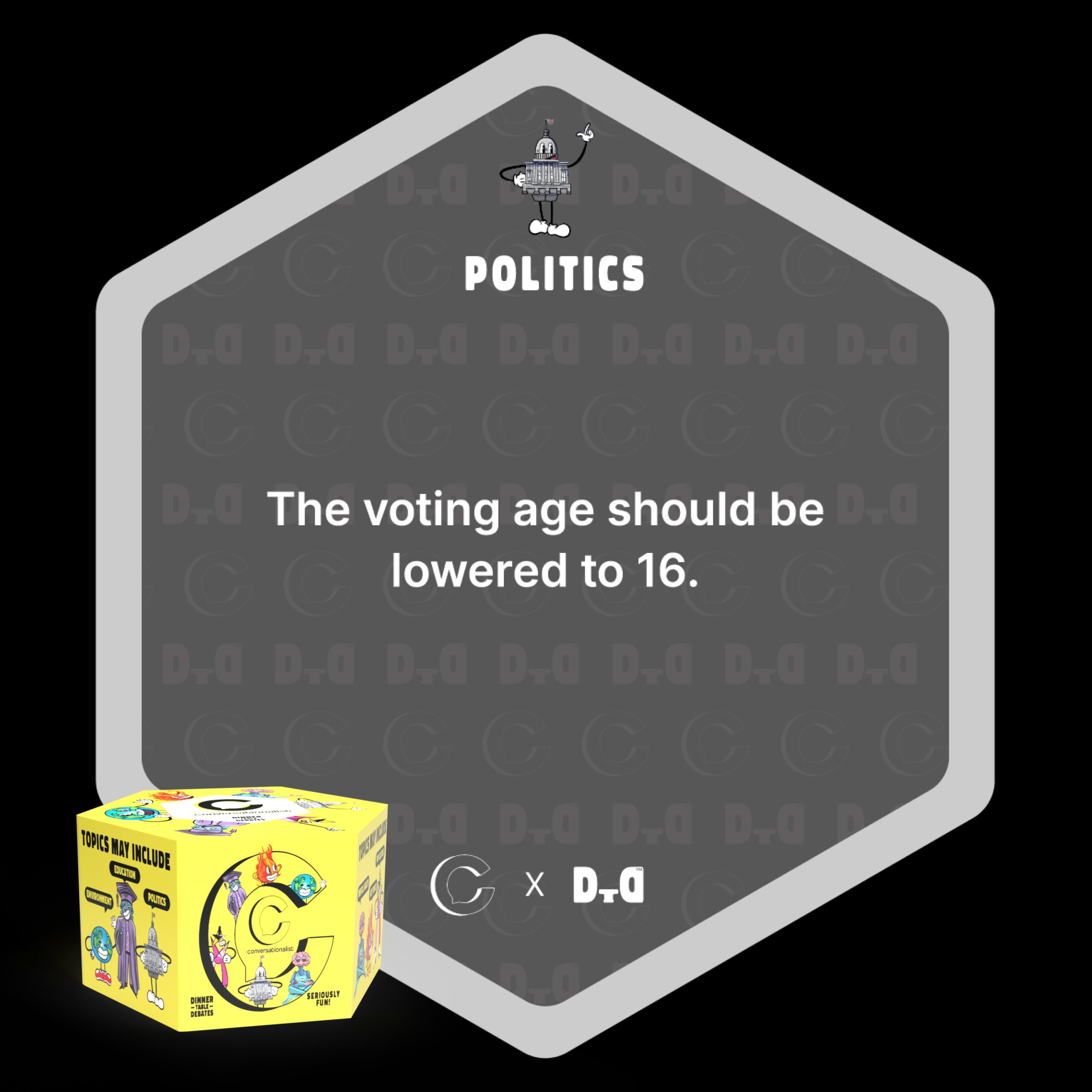Have you ever wondered why the U.S. presidential election isn't decided by a simple popular vote? Why does a candidate who receives fewer votes sometimes end up in the White House? These questions bring us to a debate that's been raging for decades: Should the Electoral College stay or go?
Welcome to your Dinner Table Debates Daily Deep Dive where we explore real topics from our decks and give you everything you need to debate, in under 10 minutes. Today's topic is "The US should disband the Electoral College" and comes from the US Law category in our Full Size Essentials Collection deck. Let's Dig In.
The Electoral College isn't just a modern quirk of American politics - it's a system that's been woven into the fabric of U.S. democracy since the nation's inception. The Founding Fathers established it in the Constitution as a compromise, balancing the desire for popular representation with concerns about giving too much power to the masses or to Congress. For more than two centuries, this unique mechanism has determined how Americans choose their president, but it's also been a lightning rod for controversy and debate. Fun fact, At least 10 other countries actually have an electoral college, but they don't function in quite the same way that the U.S. system does.
Some more background on how we got here. Direct popular election worried some Founders for several reasons. They feared that a purely democratic process might lead to the election of a populist demagogue aka rabble-rouser aka agitator aka (a leader who makes use of popular prejudices and false claims and promises in order to gain power) or that the general public might lack the information necessary to make an informed choice. There were also practical concerns about coordinating a nationwide popular vote in an era of limited communication and transportation.
The idea of allowing Congress to pick our president was proposed in the initial "Virginia Plan," and it was seriously considered. However, this was ultimately rejected due to concerns about the Separation of Power and ensuring the President remained independent from and unbeholden to the legislative branch aka the Senate and House of Representatives aka Congress.
The Electoral College emerged as a middle ground. It was designed to filter the popular will through a group of knowledgeable electors, addressing fears about an uninformed electorate and it gave states of all sizes a role in selecting the president, based partly on their population, which helped address the concerns of both large and small states.
Fun fact, Congress does actually have a role in the electoral process if no candidate receives a majority of electoral votes. In such cases, the House of Representatives chooses the president from among the top three candidates. This has happened twice in U.S. history (1800 and 1824).
But this isn't just about how we count votes - it's about representation, the balance of power between states, and the very nature of American democracy. When we talk about disbanding the Electoral College, we're really asking fundamental questions about how our democracy should function and what it means for every vote to count.
Ok, but how does it work. Voters in each state choose electors to be part of the Electoral College. The number of electors each state gets is equal to its total number of Senators and Representatives in Congress. There are currently 538 electors in total, and a candidate needs to win a majority of 270 electoral votes to become president.
It's crucial to discuss this because it affects every presidential election and has led to situations where the winner of the popular vote doesn't become president. This happened most recently in 2016 when Donald Trump won the presidency despite receiving nearly 3 million fewer votes than Hillary Clinton.
Now, let's debate!
Agree (The US should disband the Electoral College):
Disagree (The US should not disband the Electoral College):
Now, let's explore some rebuttals.
For the first "Agree" point about one person, one vote, a rebuttal might go: While it's true that votes in swing states carry more weight in practice, the Electoral College actually gives smaller states more representation than they would have in a purely population-based system. Each state gets a minimum of three electoral votes, regardless of population. This ensures that even the least populous states have a voice in the election.
For the second "Disagree" point about maintaining the federal character of the nation, you could argue: While the Founding Fathers' intent is important, our understanding of democracy has evolved. Many other federal systems, like Germany and India, elect their head of government through a national popular vote without compromising their federal structure. The U.S. could potentially do the same without losing its essential character as a union of states.
To sum it up, the debate over the Electoral College touches on core principles of American democracy, including representation, federalism, and the balance between majority rule and protection of minority interests. There are valid points on both sides, highlighting the need for careful consideration of any potential changes to this long-standing system.
Some alternatives have been proposed. The National Popular Vote Interstate Compact is an agreement among a group of U.S. states and the District of Columbia to award all their electoral votes to whichever presidential candidate wins the overall popular vote. As of 2023, it has been adopted by 15 states and D.C., though it won't take effect until enough states join to control a majority of electoral votes.
Want to dig into this topic even more? Well, when you’re playing Dinner Table Debates at home, you can have Agree set the stage and choose how to define the debate. This means they can outline the terms, context, and interpretation, creating a unique and dynamic conversation every time. Here are some ways that Agree could redefine the debate topic “The US should disband the Electoral College”:
Exploring these alternatives can broaden the debate, making for dynamic and compelling conversations that keep you discussing late into the night.
If you enjoyed our deep dive, you can debate this topic and many others by getting your own Dinner Table Debates deck at DinnerTableDebates.com. It's a unique game because every round starts with randomly assigning agree or disagree, then you pick the topic, meaning that you might be debating for something you disagree with or vice versa. But that's the point! Stretch your brain, gain clarity, improve critical thinking and empathy, and have fun doing it! You can also join the debate on our Instagram and TikTok account. Get ready for some thought-provoking discussions that will challenge your assumptions and broaden your understanding of the world around you! Happy debating and remember everyone is always welcome at the table.

How do you feel therapy is treated in the US? Do you feel like it’s easy to access and socially accepted? Compare that to...

How old were you when you first felt truly aware of the world around you—the politics, the issues, the community decisions? In many cases...

Do you ever catch yourself staring into the mirror, pondering life’s big questions? Like, why do I sometimes feel an existential void after binge-watching...